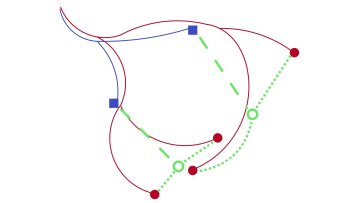The Mirror Clemens-Schmid Sequence
Abstract
I will present a four-term exact sequence relating the cohomology of a fibration to the cohomology of an open set obtained by removing the preimage of a general linear section of the base. This exact sequence respects three filtrations, the Hodge, weight, and perverse Leray filtrations, so that it is an exact sequence of mixed
Hodge structures on the graded pieces of the perverse Leray filtration. I claim that this sequence should be thought of as a mirror to the Clemens-Schmid sequence describing the structure of a degeneration and formulate a "mirror P=W" conjecture relating the filtrations on each side. Finally, I will present evidence for this conjecture coming from the K3 surface setting. This is joint work with Charles F. Doran.


